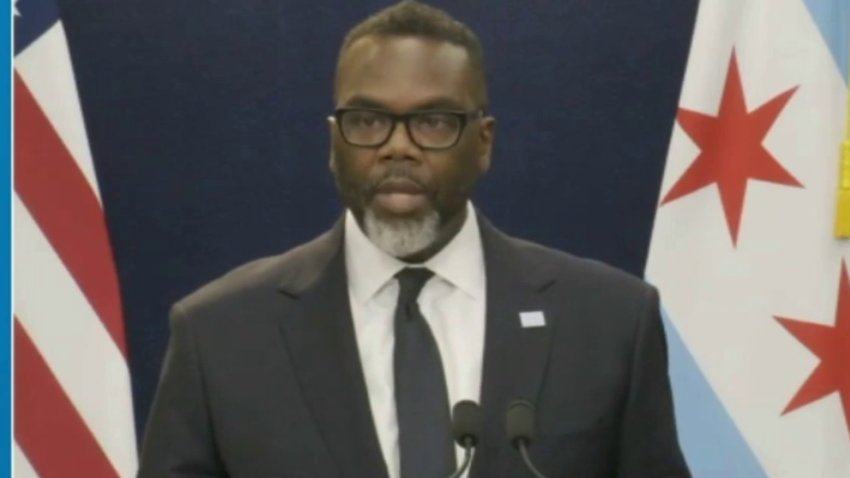Chicago migrant shelters to close, merge residents into existing programs
Published October 21, 2024 • Updated on October 21, 2024 at 5:23 pm
To watch video report, Click Here.
With the flow of migrants seeking asylum drastically slowing down, Mayor Brandon Johnson announced big changes to the city’s policies, as Charlie Wojciechowski reports.
There was a time earlier this year that Chicago and the State of Illinois was opening a new migrant shelter every week, but with buses stopping operations, the city is making massive changes.
Chicago Mayor Brandon Johnson made the announcement Monday, merging the city’s new arrivals mission with existing homelessness programs in what has been called the “One System Initiative.”
Johnson said during the event that no new buses have arrived from Texas since June, allowing the city to make changes to its approach.
“We are now able to shift from a large-scale crisis response to a more cost effective, equitable and strategic approach that addresses homelessness for all who need support,” Johnson said today in front of a group of city officials and select members of the city council.
Under the combined program, Chicago will have 6,800 shelter beds available. As of Monday, 4,996 migrants are living in 13 active shelters run by the city and state according to the Office of Emergency Management and Communications. There are none waiting at airports or police districts for placement.
Johnson said the city could use as many as 11,000 beds and could have funded them under the Bring Chicago Home initiative, which was voted down by city residents earlier this year.

Starting in November, the city will start winding down operations at the new arrivals landing zone on South Des Plaines. That facility will be closed in Jan. 2025.
“Starting in January, people will look for shelter by calling 311 and it will be on a first available basis,” said Brandie Knazze, the City’s Commissioner of Family and Support Services.
Without the estimated $200 million that real estate transfer tax initiative would have generated, Johnson said he will have to go to City Council to ask for funding for the combined program.
“If you are homeless by way of seeking asylum, or because you have experienced gross disinvestment from previous administrations…my administration is going to show up for you,” Johnson said.
How much and what form that might take, he said, will be part of his budget address later this month.